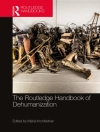Easily distinguished by the horns and frills on their skulls, ceratopsians were one of the most successful of all dinosaurs. This volume presents a broad range of cutting-edge research on the functional biology, behavior, systematics, paleoecology, and paleogeography of the horned dinosaurs, and includes descriptions of newly identified species.
สารบัญ
Preface
Part 1. Overview
1. Forty Years of Ceratophilia
Part 2. Systematics and New Ceratopsians
2. Taxonomy, Cranial Morphology, and Relationships of Parrot-Beaked Dinosaurs
3. A New Species of Archaeoceratops from the Early Cretaceous of the Mazongshan Area, Northwestern China
4. A Redescription of the Montanoceratops cerorhynchus Holotype with a Review of Referred Material
5. First Basal Neoceratopsian from the Oldman Formation, Southern Alberta
6. Zuniceratops christopheri: The North American Ceratopsid Sister Taxon Reconstructed on the Basis of New Data
7. Horned Dinosaurs from the Upper Cretaceous Cerro del Pueblo Formation, Coahuila, Mexico
8. New Basal Centrosaurine Ceratopsian Skulls from the Wahweap Formation, Grand Staircase–Escalante National Monument, Southern Utah
9. A New Pachyrhinosaurus-Like Ceratopsid from the Upper Dinosaur Park Formation of Southern Alberta, Canada
10. New Material of ‘Styracosaurus’ ovatus from the Two Medicine Formation of Montana
11. A New Chasmosaurine from the Upper Cretaceous Ojo Alamo Formation, San Juan Basin, New Mexico
12. A New Chasmosaurine Ceratopsid from the Judith River Formation, Montana
13. Description of a Complete and Fully Articulated Chasmosaurine Postcranium Previously Assigned to Anchiceratops
14. A New, Small Ceratopsian Dinosaur from the Latest Cretaceous Hell Creek Formation, Northwest South Dakota, United States: A Preliminary Description
Part 3. Anatomy, Functional Biology, and Behavior
15. Comments on the Basicranium and Palate of Basal Ceratopsians
16. Mandibular Anatomy in Basal Ceratopsia
17. Histological Evaluation of Ontogenetic Bone Surface Texture Changes in the Frill of Centrosaurus apertus
18. Modeling Structural Properties of the Frill of Triceratops
19. New Evidence Regarding the Structure and Function of the Horns in Triceratops
20. Evolutionary Interactions between Horn and Frill Morphology in Chasmosaurine Ceratopsians
21. Skull Shapes as Indicators of Niche Partitioning by Sympatric Chasmosaurine and Centrosaurine Dinosaurs
22. The Function of Large Eyes in Protoceratops: A Nocturnal Ceratopsian?
23. A Semi-Aquatic Life Habit for Psittacosaurus
24. Habitual Locomotor Behavior Inferred from Manual Pathology in Two Late Cretaceous Chasmosaurine Ceratopsid Dinosaurs, Chasmosaurus irvinensis and Chasmosaurus belli
25. Paleopathologies in Albertan Ceratopsids and Their Behavioral Significance
Part 4. Horned Dinosaurs in Time and Space: Paleobiology, Taphonomy, and Paleoecology
26. An Update on the Paleobiogeography of Ceratopsian Dinosaurs
27. Unraveling a Radiation: A Review of the Diversity, Stratigraphic Distribution, Biogeography, and Evolution of Horned Dinosaurs
28. A Review of Ceratopsian Paleoenvironmental Associations and Taphonomy
29. Behavioral Interpretations from Ceratopsid Bonebeds
30. Paleontology and Paleoenvironmental Interpretation of the Kikak-Tegoseak Quarry, Northern Alaska: A Multi-Disciplinary Study of a High-Latitude Ceratopsian Dinosaur Bonebed
31. Taphonomy of Horned Dinosaurs from the Late Campanian Kaiparowits Formation, Grand Staircase–Escalante National Monument, Utah
32. A Centrosaurine Mega-Bonebed from the Upper Cretaceous of Southern Alberta: Implications for Behavior and Death Events
33. Insect Trace Fossils Associated with Protoceratops Carcasses in the Djadokhta Formation, Mongolia
34. Faunal Composition and Significance of High-Diversity, Mixed Bonebeds Containing Agujaceratops mariscalensis and Other Dinosaurs, Aguja Formation Big Bend, Texas
Part 5. History of Horned Dinosaur Collection
35. Lost in Plain Sight: Rediscovery of William E. Cutler’s Missing Eoceratops
36. Historical Collecting Bias and the Fossil Record of Triceratops in Montana
Afterword
Index
Supplemental CD-ROM
1. A Ceratopsian Compendium
2. Ceratopsian Discoveries and Work in Alberta, Canada: History and Census
เกี่ยวกับผู้แต่ง
Michael J. Ryan is Vice-Chair Curator and Head of Vertebrate Paleontology at the Cleveland Museum of Natural History.Brenda J. Chinnery-Allgeier is Lecturer in the School of Biological Sciences at The University of Texas at Austin.David A. Eberth is a senior research scientist at the Royal Tyrrell Museum in Drumheller, Alberta, Canada.












